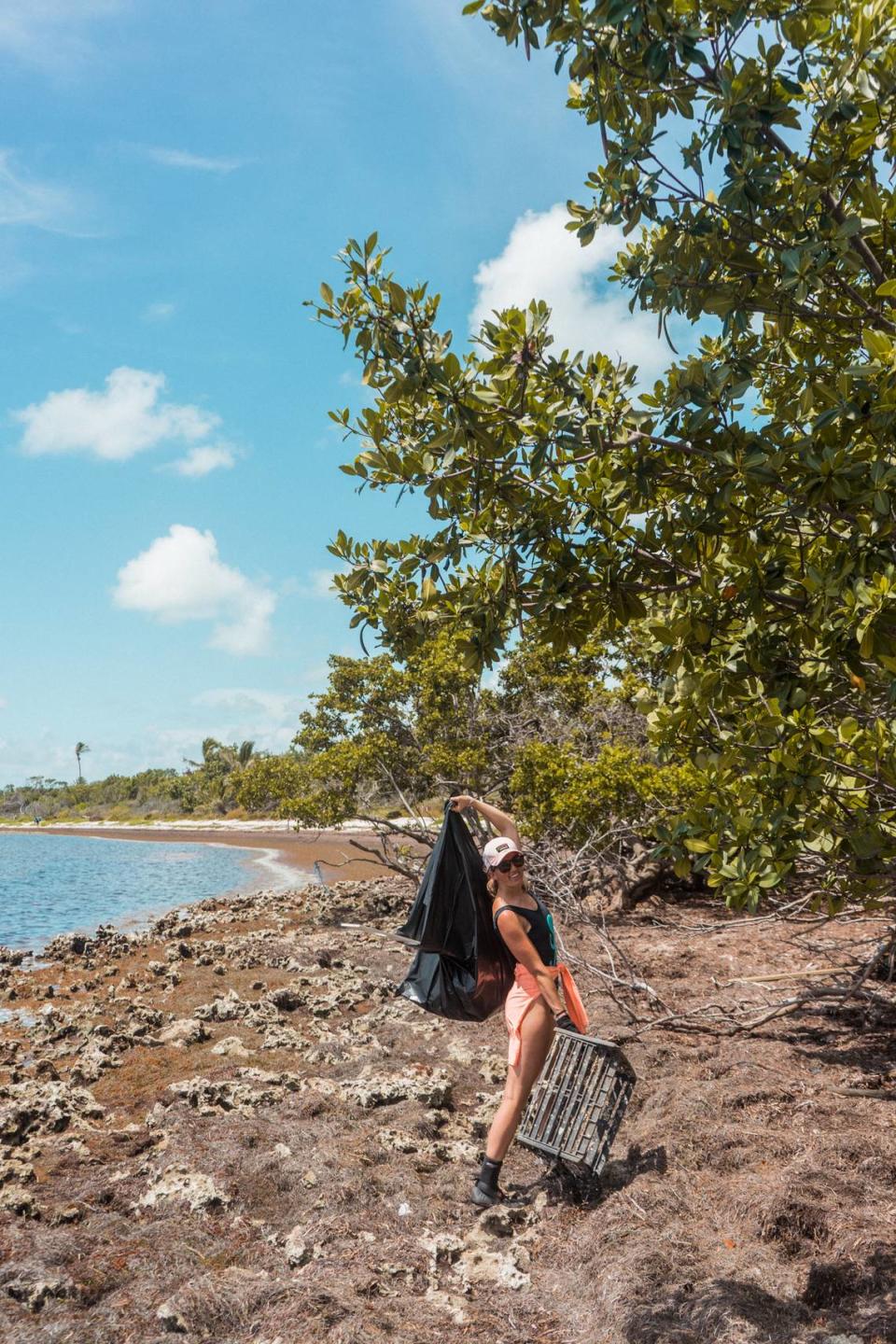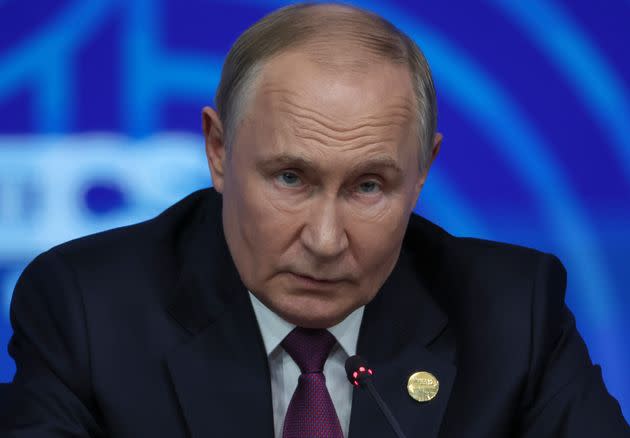Single-use plastics pose a major problem for the environment, especially our oceans. Did you know plastic detrimentally impacts about 700 marine species? By 2050, there could be more plastic, by weight, in the ocean than fish, according to some estimates.
Stopping the fast-growing production of plastics is a big part of the solution, says Caiti Waks, who founded the Miami sustainability nonprofit Debris Free Oceans. Globally, plastic production is predicted to double over the next decade, according to Ocean Conservancy.
Debris Free Oceans is on a mission to help communities to responsibly manage the life cycle of plastics and waste. It’s part of a global movement to eradicate marine debris from our oceans and beaches. The 501(3)(c) nonprofit is led by Caiti Waks, who has a big vision for Miami-Dade — and beyond.
“I would like to see clean streets and reusable products being widely utilized en masse so the amount of trash heading to the landfills is little to none,” says Debris Free Oceans’ co-founder and president Waks, who is also a lawyer.

As part of a nonprofit management class project while attending University of Miami’s law school, she envisioned the organization. After graduating, her husband, entrepreneur Jeremy Waks, encouraged her to launch the nonprofit in 2014. He would become a co-founder, along with a friend from law school, Saira Fida, who is a CPA and accountant.
Getting rid of single-use plastics
Waks’ organization does do beach cleanups but is mainly focused on prevention and positive reinforcement. If organizations — including corporations, big hospitality companies, governments and academic institutions as well as citizens — stopped using single-use plastics, less would be needed to be produced and later cleaned up.
“The best solution to the waste crisis is not creating it in the first place,” says Waks.
Most recently, Debris Free Oceans, also known as DFO, received seed funding from the Meringoff Family Foundation and a NOAA Sea Grant to create Zero Waste Miami, a coalition that will focus on connecting reuse service providers to big users, and “creating this circular economy around reuse. It creates jobs,” Waks says.
Already 95 people from more than 70 organizations spanning business, government, nonprofits and academic institutions have joined the effort, says Maddie Kaufman, program director.
Working with Ultra, Beach restaurants
Under the Mango Tree restaurant in Miami Beach, for instance, is working with the group to create a plastic-free pilot. Debris Free Oceans also connected Ultra Music Festival to ReCreate Miami, a reuse network, and together they have diverted about 9 tons of signage and other materials from landfills.
“We’re excited to boost the Zero Waste Coalition that Caiti is now leading in Miami and beyond,” says Joan Godoy, CEO of Radical Partners, a social impact accelerator for nonprofit leaders that Waks graduated from in 2022. “With passion and purposeful idealism, she is shifting our culture toward a circular economy, where ‘waste’ no longer exists, and all consumables are part of a closed-loop life cycle.”
Education is also a big focus for the nonprofit. Two college students participate each year in the group’s Chef Andrew Scholars Program, to honor the memory of chef Andrew Michael Alessi, who loved the ocean and supported the nonprofit.
The team mentors the students to be experts in plastic pollution. The students make educational presentations to schools and community groups, make public comments at county commission meetings, and host cleanups, learning about sustainability and community organizing along the way.
Partnered with Miami Beach
About five years ago, Debris Free Oceans worked with the City of Miami Beach to create a voluntary certification program for businesses that eliminate single-use plastics, and the nonprofit still runs Plastic Free MB. A couple of years ago, Miami-Dade County launched Plastic Free 305 and the Debris Free Oceans team has been helping the county on that initiative, Waks says.
Debris Free Oceans also has partnered with Ocean Conservancy and Big Blue + You to train local high school students to become junior sustainability consultants. As part of DFO’s Plastic Free Cities initiative, they talk to the businesses about eliminating single-use plastics, and then hopefully sign them up for Plastic Free 305.
There’s power in numbers and collaboration is key. “Debris Free Oceans is an incredible organization that educates and inspires local businesses and residents on how easy and beneficial waste reduction can be,”says Sophie Ringel, who runs Clean Miami Beach, a fellow nonprofit focused on clean beaches and education programming.
Since Debris Free Oceans was founded in 2014, the organization has participated in 384 cleanups, removing over 61,500 pounds of debris, and has educated more than 14,200 students.
“Through our Plastic Free Cities program, we estimate that 1.28 million single-use plastic items are being diverted annually by voluntary business choices so far. We have engaged with 145 businesses across Miami-Dade County, and 10 have signed up for Plastic Free 305,” says Amanda Di Perna, DFO’s program manager.

Critical to success are Debris Free Ocean’s 12,000 volunteers. Katy Roth has been involved for nine years as a volunteer, helping out with beach and reef cleanups, eco fashion shows and clothing swaps.
“DFO inspires me and makes activism fun,” she says. “I always have a great time and feel like I tangibly did something in support of our environment. I’m so grateful to have connected with this passionate group truly trying to make our city a better place.”
Looking ahead, Waks says DFO is focused on continuing to expand its Plastic Free Cities and Plastic Free 305 programs, building up Zero Waste Miami, and activating more projects that reduce waste throughout Miami-Dade County, while “making sure that we’re reaching many diverse backgrounds to ensure that everyone is part of the conversations creating those solutions.”
Meantime, there’s work to do. To Waks, success looks this this: “A circular economy so mainstream in Miami that Debris Free Oceans is no longer needed.”
How to help
To donate to Debris Free Oceans: https://debrisfreeoceans.org/donate/
EMEA Tribune is not involved in this news article, it is taken from our partners and or from the News Agencies. Copyright and Credit go to the News Agencies, email news@emeatribune.com Follow our WhatsApp verified Channel




